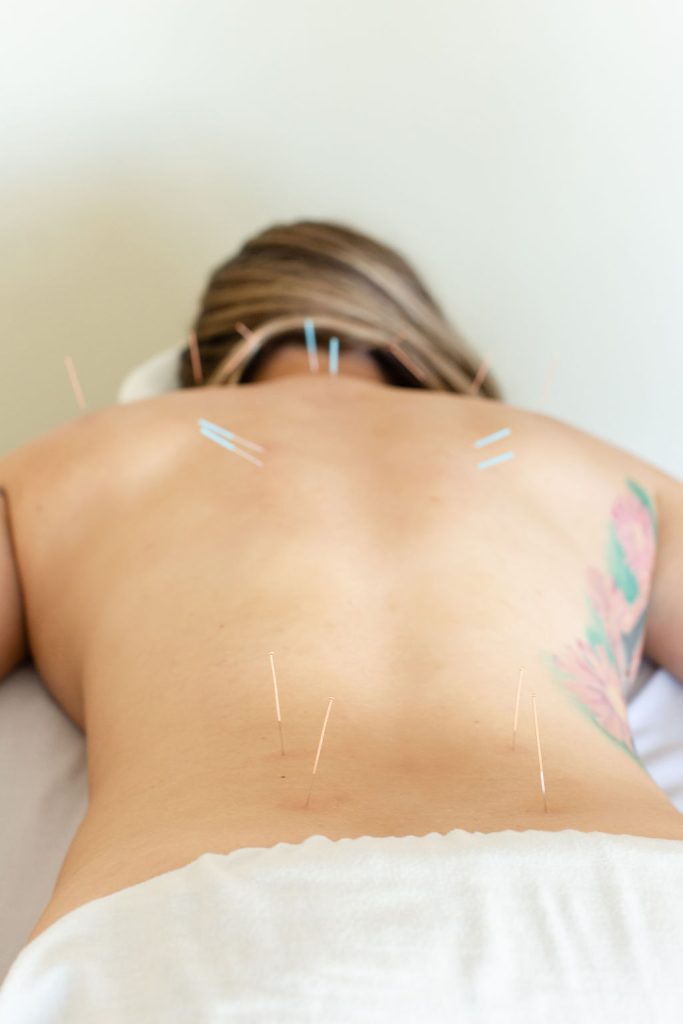Stress, anxiety, and depression are part of life for many people, but their effects can go far beyond feeling overwhelmed or sad. Stress, especially chronic stress, can disrupt sleep, impact digestion, and even increase your risk of conditions like heart disease or hormonal imbalances. Anxiety and depression often leave people feeling drained, both mentally and physically. At our Edmonton acupuncture clinic, we see just how deeply stress affects health—and how much acupuncture can help restore a sense of calm and well-being. (It’s one of the most rewarding parts of what we do!)
If you’re curious about using acupuncture for stress management and mental health, this blog covers everything you need to know. By the end, you’ll see why this holistic approach might be the missing piece in your mental health toolkit.
If you’re ready to take the first step, feel free to book a free consultation with our clinic, and check out our reviews!

Understanding Stress, Anxiety, and Depression
Stress is more than just feeling tense or irritable—it’s a physiological response. When stressed, your body releases hormones like cortisol and adrenaline, preparing for “fight or flight.” This is helpful in emergencies but harmful when it becomes chronic. Chronic stress can lead to symptoms like headaches, poor sleep, and weakened immunity. Anxiety and depression, on the other hand, are mental health conditions that often overlap with stress, amplifying its effects.
While medications or therapy may help, many people look for natural ways to manage these issues without side effects. That’s where acupuncture shines.
How Acupuncture for Stress Management and Mental Health Works
Acupuncture helps by improving circulation and calming your nervous system. Thin, sterile needles are gently placed at specific points to signal the body to release endorphins (your natural “feel-good” chemicals). These points also reduce the stress response, helping you shift out of that fight-or-flight mode and into rest-and-repair mode.
Here’s what makes acupuncture special: it treats the root cause. For example, stress-related symptoms like tension headaches, tight shoulders, or poor digestion are all connected, and acupuncture can address them as part of the bigger picture.
What Research Says About Acupuncture for Stress Management and Mental Health
Science backs up what we see every day in our practice! Studies have shown that acupuncture can lower cortisol levels (the stress hormone) and increase serotonin, which improves mood. Research also highlights its ability to reduce symptoms of anxiety and depression.
While more studies are being done, the evidence so far is promising—especially when combined with other healthy habits.
Pairing Acupuncture with Other Stress-Reduction Techniques
We often recommend combining acupuncture with mindfulness practices, yoga, or even deep breathing exercises. These techniques complement each other beautifully.
Acupuncture sets the stage by calming your body and improving how you process stress physically. Meanwhile, mindfulness and yoga help you build mental resilience and stay present in stressful moments. (Think of it as a mind-body synergy.)
Not sure where to start? We’re happy to provide simple recommendations during your session or connect you with local classes or resources here in Edmonton.
How to Incorporate Acupuncture into Your Stress Management Routine
Consistency is key when it comes to acupuncture. While some people feel results after just one session, the benefits often build over time. For stress management, we typically suggest starting with weekly or bi-weekly sessions, depending on your symptoms and goals.
You can also treat acupuncture as part of your self-care routine. Many clients find it helpful to schedule sessions during particularly stressful periods (like a big work project) or when life feels out of balance.

What to Expect During an Acupuncture Session for Mental Health
If you’ve never tried acupuncture before, the idea of needles might sound intimidating—but it’s not what you think! The needles are very thin (about the width of a hair), and most people feel little to no discomfort.
When you come to our Edmonton clinic, we’ll start by chatting about your stress levels, sleep patterns, and overall health. From there, we’ll tailor a treatment plan just for you. During the session, you’ll lie down in a cozy room, and the needles will stay in for about 20-30 minutes. Most clients describe feeling deeply relaxed, and some even nap!
Practical Tips for Managing Stress and Anxiety
Acupuncture works best when paired with other simple habits to keep stress at bay. Here are some tips to try:
- Stick to a routine: Regular sleep and meal times help regulate your body’s stress response.
- Move your body: Gentle exercise can reduce stress hormones.
- Breathe deeply: Try taking 5-10 deep belly breaths when you feel overwhelmed.
- Prioritize self-care: Whether it’s acupuncture, journaling, or a hot bath, make time for activities that recharge you.
Acupuncture For Stress Management and Mental Health
Stress, anxiety, and depression can feel overwhelming, but you don’t have to tackle them alone. Acupuncture offers a gentle, natural way to support your mental health, whether you’re looking for relief from symptoms or a way to feel more grounded day-to-day.
If you’re ready to explore how acupuncture can help you manage stress, book a free consultation with our clinic, and read our reviews. We’d love to support you on your journey to feeling calmer and more at ease!